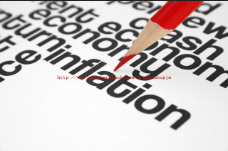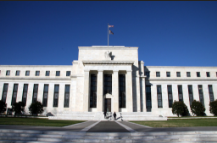Trying to Outrun Inflation With Speculation
Back in the .com bubble days, Alan Greenspan worried about “irrational exuberance,” but chose to let markets adjust on their own, without hiking interest rates to pop the stock market bubble. Today's bubble economy stretches well beyond stocks, wrote Greg Ip for the Wall Street Journal, there’s artificial intelligence (AI) of course, and, “The speculative fever has spread well beyond the usual stocks, bonds and property. Crypto, a brand new asset class, is now valued at some $4 trillion. Americans bet $150 billion on sports last year, up 24% from 2023, according to the American Gaming Association. Gold, a hedge against bubbles, is looking bubbly itself. Speculation has become woven into today’s political, economic and cultural psyche,” Ip wrote.
Lame Fed duck J. Powell has turned a blind eye to the bubble economy, stepping on the gas by lowering interest rates 50bps and stopping quantitative tightening. Donald Trump’s Fed appointee Stephen Miran, dissented the last two meetings, voting for half-point rate cuts each meeting, rather than the two quarter-point cuts. Polymarket is now part of the lexicon, with the operator of the New York Stock Exchange investing $2 billion in the wagering platform that “lets you gamble on almost anything, from the World Series to Ireland’s presidential election.”
When Powell is replaced next year, the low interest rate loving president will insert someone as chair, promote lowering rates faster (print money) and likely re-institute quantitative easing. “Yet in effect the Fed has refilled the speculative party’s punch bowl,” Ip explains. “If Trump gets his way, the Fed could spike the punch bowl even more, as he seeks to install loyalists on the central bank.”
Gregory Bresiger wrote on mises.org in 2001 “there is little doubt that bad fiscal and monetary policies feed a stock-market bubble that eventually leads to wild speculation.” Bresinger continued, quoting Paul Volker, “For those who think that the Fed has outlawed the business cycle and that these problems of low savings as well as jittery markets can be solved by a brilliant central banker, Volcker has a warning: ‘The Federal Reserve is often not in control of things, particularly in the short run. Sometimes the markets are in control of events rather than the other way around. We only have one pill (the federal funds rate) and that is not always suitable to all circumstances.’”
What was true in 2001 is still true today.
What happened to plain old savings? Even the man on the street knows earning 4% on treasury debt is devoured by the government’s incessant inflation. “Another part of the savings problem, Volcker argued, is the distorting effect of the stock market—the so-called wealth effect. Paper profits lead investors to think that they are invulnerable and that the Fed has some magic wand to keep markets going up forever,” Bresinger wrote.
Speculation isn’t bad, per se, the WSJ’s Ip wrote, “Speculation and bubbles are intrinsic to how capitalist economies grow.” But, In Human Action, Ludwig von Mises wrote: “Every single performance in the ceaseless pursuit of wealth production is based upon saving and the preparatory work of earlier generations. We are the lucky heirs of our fathers and forefathers whose saving has accumulated the capital goods with the aid of which we are working today.” Rothbard had sympathy for speculation, writing, “The general effect of speculation is to make both the supply and demand curves more elastic … The more people engage in such (correct) speculation, the more elastic will be the curves, and, by implication, the more rapidly will the equilibrium price be reached.”
But Rothbard wasn’t writing about a world awash in fiat currencies. “The sound money is the genuine gold standard; ‘genuine’ in the sense that each currency is defined as a certain unit of weight of gold, and is redeemable in that weight.”
Paper and digital money are light as a feather. Speculations can land with a thud. “Debt is high. Speculation is rampant. And what investors think is beginning to sound “too good to be true” is starting to look a lot like other bubbles, says Andrew Ross Sorkin who has a new book out, 1929: Inside the Greatest Crash in Wall Street History. But, the author doesn’t know when a crash could happen or how deep it could be.
The results of inflation we see everywhere. But, while we try to out-race higher prices with speculation, we never know when the crash will come.





